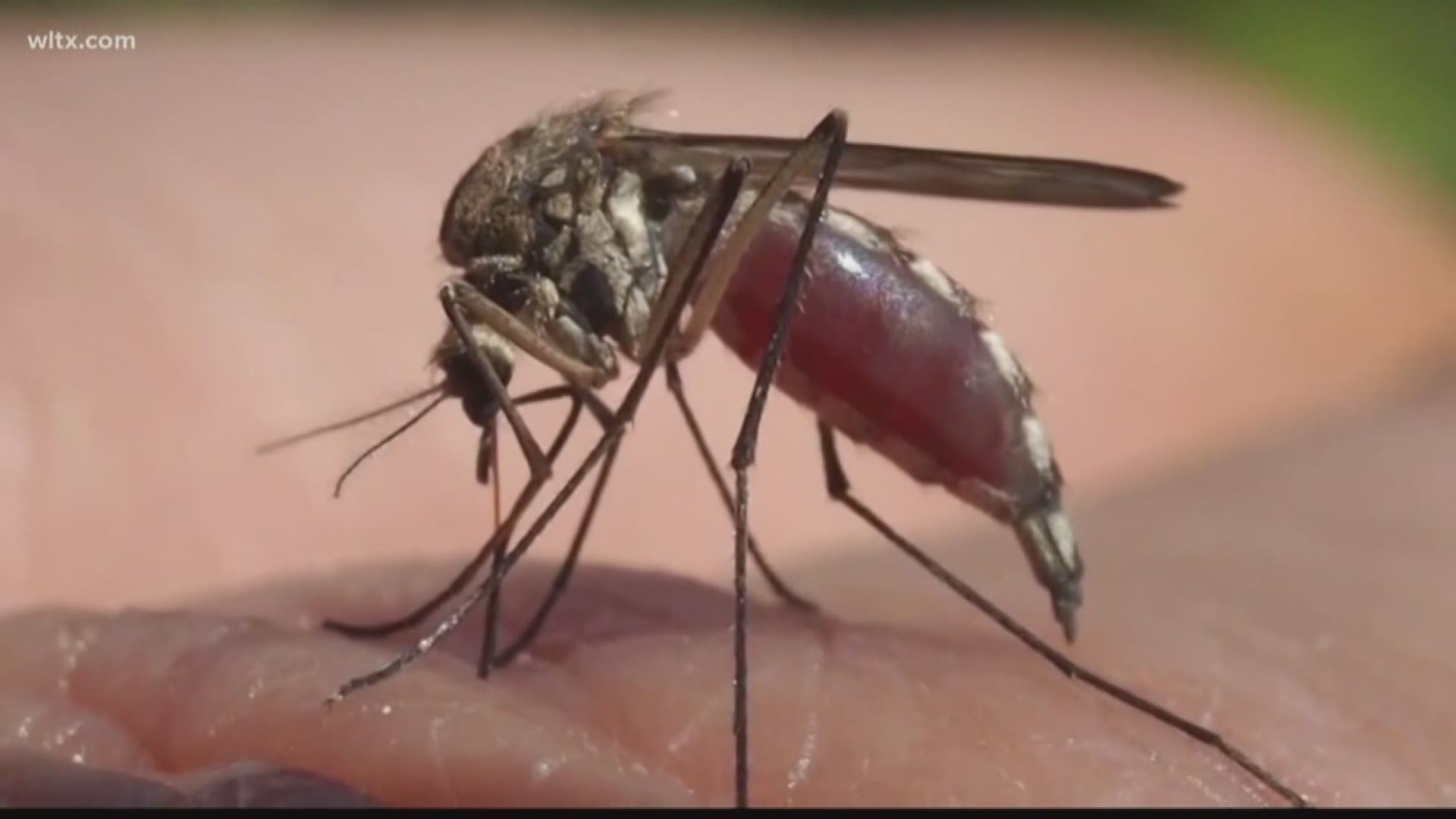COLUMBIA, S.C. — If you find yourself outdoors in the South in the summer, you know how pesky mosquitoes can be. So the state of South Carolina is offering tips on who to combat the insects during National Mosquito Control Awareness Week.
The state health department, DHEC, says there are 61 different species of mosquitoes in South Carolina. The chief danger of mosquito's bites (other than just being itchy) is that they carry diseases. The most most common diseases from mosquitoes are the West Nile virus, eastern equine encephalitis virus, La Crosse encephalitis virus, Saint Louis encephalitis virus, and dog/cat heartworm.
"As warm weather arrives and people encounter more mosquitoes, protecting yourself from bites becomes more important,” said Dr. Chris Evans, State Public Health Entomologist with DHEC's Bureau of Environmental Health Services. “DHEC’s surveillance program helps identify cases of West Nile virus and other mosquito-borne diseases in our state. Most mosquitoes are just a nuisance; however, we detect West Nile virus in mosquitoes in our state every year.”
The American Mosquito Control Association recommends three “Ds” to keep mosquitoes away:
- Drain: Empty out water containers at least once per week.
- Dress: Wear long sleeves, long pants, and light-colored, loose-fitting clothing.
- Defend: Properly apply an EPA-registered product that contains a repellent such as catnip oil, citronella/citronella oil, DEET, IR 3535, oil of lemon eucalyptus, picaridin, 2-undecanone, or permethrin-treated clothing. With all repellents, be sure to follow product label instructions
The state also says cleaning up can help eliminate the bugs. Mosquitoes can lay eggs in as little as a bottle cap of water. They suggest getting rid of standing water that can regularly accumulate in buckets, flowerpots, grill covers, tires, trashcan lids, outdoor toys, and other yard decorations or debris.
For more information on steps that individuals can take to prevent mosquito bites and eliminate mosquito-breeding grounds around their homes, visit www.scdhec.gov/mosquitoes. Use DHEC’s Mosquito-Borne Disease Viewer for the most current case counts of mosquito-borne disease in birds, mosquitoes, and veterinary animals.

